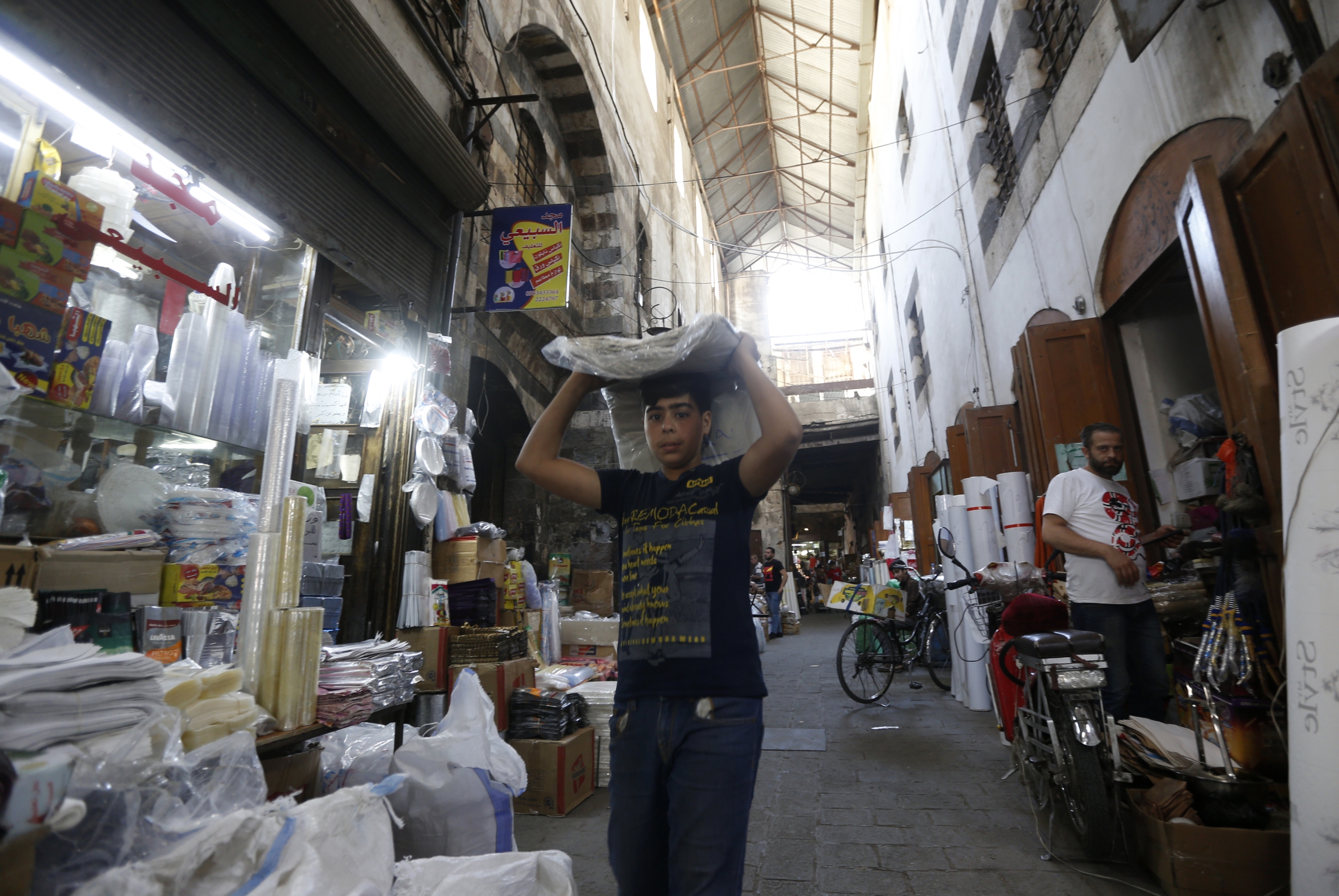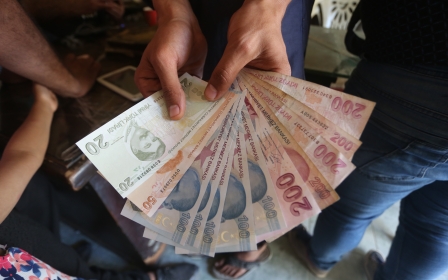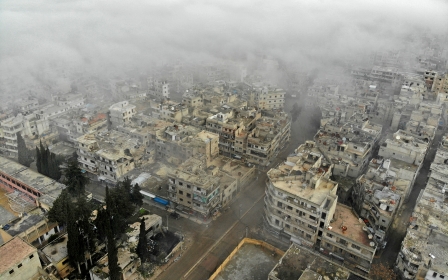US sanctions against Syria come into effect as currency devalued

US sanctions aimed at weaking the government of Syrian President Bashar al-Assad came into effect on Wednesday, prompting a devaluation of the country's currency after weeks of financial turmoil.
The so-called Caesar Act, named after a dissident who leaked evidence of torture in Syrian jails in 2014, aims to cut off revenue to the Syrian government, which after nine years of civil war has managed to retake the majority of the country with the aid of Russia and Iranian militias.
Secretary of State Mike Pompeo said on Wednesday that the sanctions represent "the beginning of what will be a sustained campaign of economic and political pressure to deny the Assad regime revenue and support it uses to wage war and commit mass atrocities against the Syrian people".
"Anyone doing business with the Assad regime, no matter where in the world they are, is potentially exposed to travel restrictions and financial sanctions," Pompeo said in a statement.
The new sanctions will target 39 individuals and entities including Assad and his wife Asma.
New MEE newsletter: Jerusalem Dispatch
Sign up to get the latest insights and analysis on Israel-Palestine, alongside Turkey Unpacked and other MEE newsletters
The act will also target foreigners doing business with Damascus, as well as those participating in the reconstruction of the country.
A Syrian Foreign Ministry source told state news agency Sana that the sanctions violated international law and accused officials in Washington of behaving like a "gang".
"The US administration talking about human rights in Syria exceeds the ugliest forms of lies and hypocrisy as embodied in its policy of supporting terrorism that shed the blood of the Syrians and destroyed their achievements," the source added.
Security Council members Russia and China also slammed the move, with Russia's UN Ambassador Vassily Nebenzia saying the US had confirmed "that the purpose of these measures is to overthrow the legitimate authorities in Syria".
China's UN Ambassador Zhang Jun warned that "as vulnerable countries like Syria are struggling with the [coronavirus] pandemic, imposing more sanctions is simply inhumane and may cause additional catastrophes."
On Wednesday, Syria's central bank devalued the Syrian pound, giving in to weeks of depreciation on the black market as the new sanctions took effect.
The central bank raised the official exchange rate from 704 to 1,256 Syrian pounds to the dollar, in a statement published on its social media pages.
The previous rate had been in force since March.
Earlier this month, the war-torn country's currency hit a record low on the black market of about 3,000 pounds to the dollar, sparking rare protests, before appreciating slightly after an apparent injection of dollars.
Syrian pound devalued
On Wednesday, the rate on the parallel market stood at 2,600 to 2,800 pounds to the dollar, traders told AFP.
Syria's economy has been battered by nine years of war, and is now reeling from the knock-on effects of a financial crisis in neighbouring Lebanon that has stemmed the flow of dollars into government-held areas.
Analysts have said the recent lows on the black market were likely caused by worries ahead of the introduction of the new US sanctions, and the sudden fall from grace of tycoon and cousin of the president, Rami Makhlouf, which has set other top businessmen on edge.
The Damascus government has long blamed the country's economic crisis on international sanctions.
Last week, President Bashar al-Assad sacked his prime minister of four years after criticism of the government's handling of the crisis.
Before the conflict, the exchange rate stood at 47 Syrian pounds to the dollar.
Middle East Eye delivers independent and unrivalled coverage and analysis of the Middle East, North Africa and beyond. To learn more about republishing this content and the associated fees, please fill out this form. More about MEE can be found here.





